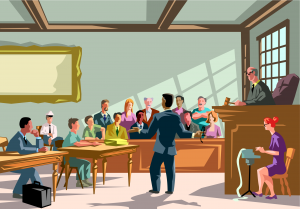Every stage of the procedure, from the time of your arrest, until your case is resolved, offers different chances and obstacles.
Navigating the criminal justice system can be difficult for anyone, whether they are facing charges or helping a loved one through the process. From the time you’re accused of a crime until your case is finally resolved, there are many obstacles to overcome and legal processes to follow. Having the appropriate assistance and comprehension of the stages involved can significantly impact your encounter with the criminal justice system.
Arrest and Initial Charges
Arrests are common starting points for the criminal justice system. This initial meeting establishes the tone for the remainder of your legal proceedings, regardless of whether you are arrested by police at the scene of a crime or are called to appear in court following an inquiry. At this point, it is critical to be aware of your rights, such as the right to legal representation and the right to silence. It’s important to maintain your composure and assist law authorities while also standing up for your rights, even if being arrested can be a terrifying experience.
Bail and Pretrial Release
Choosing whether to be detained in custody until your trial or released on bond is frequently the next step after being arrested. When your case is pending, bail is a monetary arrangement that enables you to be released from jail. Certain circumstances, like the seriousness of the accusations and your perceived flight risk, can affect the amount of bail that is needed. A bail bondsman or release on your recognizance are two other options for pretrial release if you are not able to afford bail. If you want to spend as little time as possible in detention and be ready for your defense, you must be aware of your choices for bail and pretrial release.
Arraignment and Plea
The arraignment is an important phase in the criminal justice system because it allows you to formally hear the accusations against you and enter a plea. Typically, the charges require you to enter a plea of guilty, not guilty, or no contest. Before making any decisions during the arraignment, it is crucial to speak with a criminal defense attorney. In light of your unique situation, your lawyer can assist you in deciding which course of action is best for you by explaining the possible outcomes of each plea. With the aid of the internet, now one can easily find a reliable defense attorney nearby for example, if you reside in Knoxville a quick search for a criminal defense attorney in Knoxville TN on the internet can provide you with plenty of options to choose from.
Pretrial Motions and Discovery
During the pretrial phase of your case, your attorney will be able to file motions and collect evidence to support your defense. Pretrial motions can aim to suppress evidence that was improperly obtained or to have the charges against you dropped for procedural or legal reasons. Furthermore, through a procedure known as discovery, the prosecution and defense must divulge pertinent facts. This involves exchanging documents that might be utilized in the trial, such as witness statements and evidence. Building your defense plan and spotting any holes in the prosecution’s case are crucial tasks during the pretrial period.
Trial and Sentencing

If your case goes to trial, you will be able to present your defense in court before a judge or jury. Witness testimony, cross-examination, and the presenting of evidence are all common components of lengthy and intricate trials. To secure the best result for you, your lawyer will present arguments in your favor and refute the prosecution’s case throughout the trial. The last stage of the criminal justice system is sentencing if you are proven guilty. The judge will take into account a number of considerations before imposing a sentence, such as the nature of the offense, your prior criminal history, and any extenuating circumstances. The gravity of the charges will determine the appropriate sentence, which might include jail time, fines, and probation.
Conclusion
The criminal justice system necessitates thoughtful preparation, astute judgment, and competent legal counsel to navigate successfully. Every stage of the procedure, from the time of your arrest, until your case is resolved, offers different chances and obstacles. You can successfully negotiate the legal system and strive for a successful resolution of your case by being aware of the procedures and having the appropriate assistance. Don’t wait to hire a skilled criminal defense attorney, if you’re facing criminal accusations. They can help you navigate the intricacies of the criminal justice system and defend your rights.


Join the conversation!